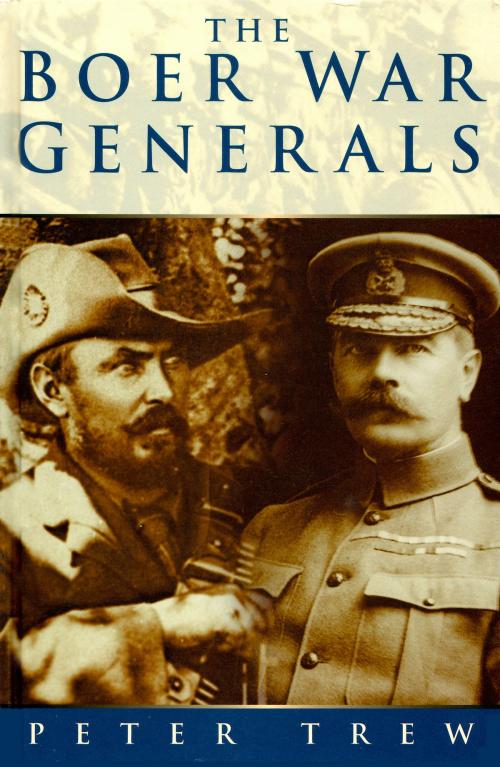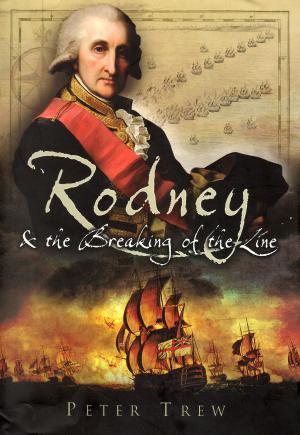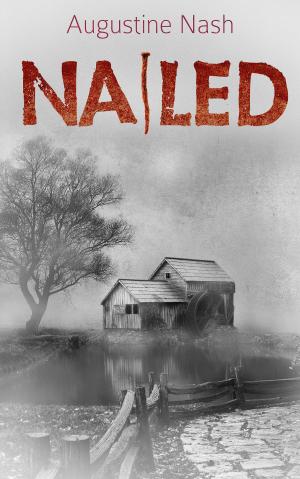The Boer War Generals
Nonfiction, History, Africa, South Africa, Biography & Memoir, Historical, Military| Author: | Peter Trew | ISBN: | 9781783011582 |
| Publisher: | eBookPartnership.com | Publication: | August 12, 2013 |
| Imprint: | eBookPartnership.com | Language: | English |
| Author: | Peter Trew |
| ISBN: | 9781783011582 |
| Publisher: | eBookPartnership.com |
| Publication: | August 12, 2013 |
| Imprint: | eBookPartnership.com |
| Language: | English |
In the Boer War (1899-1902) the professionals of the British Army fought the gifted amateurs who led the Boer commandos. For the Boers it was a struggle for independence,; for Britain an attempt, once and for all, to achieve political supremacy in South Africa. While sheer weight of numbers and ruthless tactics eventually secured a British military victory, the extraordinary Boer effort won worldwide respect.
The Boer War Generals is a study of the principal commanders on both sides, in a conflict which was both 'the last of the gentlemen's wars' and the first modern one. The three British commanders were established regular soldiers who stood high in public esteem when they went out to South Africa. For Roberts the war was a final triumph, albeit tainted somewhat when it dragged on for a year and a half after he left; for Kitchener it was a tedious and exhausting interlude which delayed his appointment as Commander-in-Chief in India; and for Buller, the graveyard of his reputation.
The Boer generals were Louis Botha, Christiaan de Wet, Koos de la Rey and Jan Smuts, of whom the first three were farmers and legislators with little conventional military experience. Smuts, after a brilliant academic career at Cambridge, was a senior but very young state official. In the course of the war , these men proved in different ways to have outstanding natural military ability.
Peter Trew's detailed narrative examines each personality separately, contrasting the command styles of the experienced professional British generals with the natural ingenuity of the 'amateur' Boers. Fully illustrated with photographs and maps, the book provides a compelling insight into a war which provoked strong feelings not just from the protagonists but across the world.
(First published as a hardback in 1999 by Sutton Publishing Limited)
The Boer War Generals is a study of the principal commanders on both sides, in a conflict which was both 'the last of the gentlemen's wars' and the first modern one. The three British commanders were established regular soldiers who stood high in public esteem when they went out to South Africa. For Roberts the war was a final triumph, albeit tainted somewhat when it dragged on for a year and a half after he left; for Kitchener it was a tedious and exhausting interlude which delayed his appointment as Commander-in-Chief in India; and for Buller, the graveyard of his reputation.
The Boer generals were Louis Botha, Christiaan de Wet, Koos de la Rey and Jan Smuts, of whom the first three were farmers and legislators with little conventional military experience. Smuts, after a brilliant academic career at Cambridge, was a senior but very young state official. In the course of the war , these men proved in different ways to have outstanding natural military ability.
Peter Trew's detailed narrative examines each personality separately, contrasting the command styles of the experienced professional British generals with the natural ingenuity of the 'amateur' Boers. Fully illustrated with photographs and maps, the book provides a compelling insight into a war which provoked strong feelings not just from the protagonists but across the world.
(First published as a hardback in 1999 by Sutton Publishing Limited)
In the Boer War (1899-1902) the professionals of the British Army fought the gifted amateurs who led the Boer commandos. For the Boers it was a struggle for independence,; for Britain an attempt, once and for all, to achieve political supremacy in South Africa. While sheer weight of numbers and ruthless tactics eventually secured a British military victory, the extraordinary Boer effort won worldwide respect.
The Boer War Generals is a study of the principal commanders on both sides, in a conflict which was both 'the last of the gentlemen's wars' and the first modern one. The three British commanders were established regular soldiers who stood high in public esteem when they went out to South Africa. For Roberts the war was a final triumph, albeit tainted somewhat when it dragged on for a year and a half after he left; for Kitchener it was a tedious and exhausting interlude which delayed his appointment as Commander-in-Chief in India; and for Buller, the graveyard of his reputation.
The Boer generals were Louis Botha, Christiaan de Wet, Koos de la Rey and Jan Smuts, of whom the first three were farmers and legislators with little conventional military experience. Smuts, after a brilliant academic career at Cambridge, was a senior but very young state official. In the course of the war , these men proved in different ways to have outstanding natural military ability.
Peter Trew's detailed narrative examines each personality separately, contrasting the command styles of the experienced professional British generals with the natural ingenuity of the 'amateur' Boers. Fully illustrated with photographs and maps, the book provides a compelling insight into a war which provoked strong feelings not just from the protagonists but across the world.
(First published as a hardback in 1999 by Sutton Publishing Limited)
The Boer War Generals is a study of the principal commanders on both sides, in a conflict which was both 'the last of the gentlemen's wars' and the first modern one. The three British commanders were established regular soldiers who stood high in public esteem when they went out to South Africa. For Roberts the war was a final triumph, albeit tainted somewhat when it dragged on for a year and a half after he left; for Kitchener it was a tedious and exhausting interlude which delayed his appointment as Commander-in-Chief in India; and for Buller, the graveyard of his reputation.
The Boer generals were Louis Botha, Christiaan de Wet, Koos de la Rey and Jan Smuts, of whom the first three were farmers and legislators with little conventional military experience. Smuts, after a brilliant academic career at Cambridge, was a senior but very young state official. In the course of the war , these men proved in different ways to have outstanding natural military ability.
Peter Trew's detailed narrative examines each personality separately, contrasting the command styles of the experienced professional British generals with the natural ingenuity of the 'amateur' Boers. Fully illustrated with photographs and maps, the book provides a compelling insight into a war which provoked strong feelings not just from the protagonists but across the world.
(First published as a hardback in 1999 by Sutton Publishing Limited)















